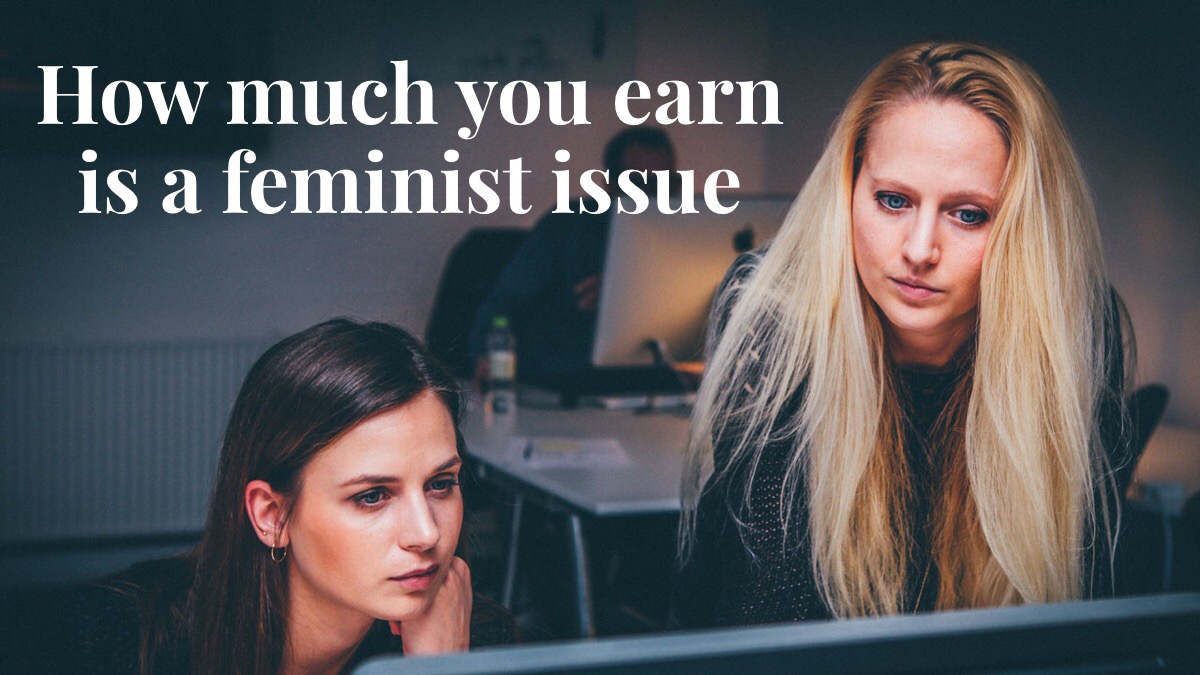More than half of female small business owners don’t pay themselves, according to a study by the Australian Women Chamber of Commerce and Industry. Of the 49 per cent who do pay themselves, only 37 per cent believe they are paying at market rate.
And it’s not because we’re slacking off – 36 per cent of self-employed women worked seven days a week.
In developing nations, the gap in earnings between genders is far more significant. As women working in a wealthy nation such as Australia, we’re privileged to have legislation and conditions to minimise this gap. And yet, we’re still overworked and underpaid, or not paying ourselves at all.
The rise and rise of female entrepreneurs
This is even more puzzling when you consider that women in Australia are leading the charge in starting their own businesses – women running their own businesses has increased 8.9 per cent in the past five years, while the number of males running a business has dropped by 3.7 per cent in the same period (according to AWCCI research).
Returning to the workforce after having children poses a significant challenge for families: women who want to work part-time and flexible hours frequently come up against workplaces that, despite paying lip service to flexible work, don’t have the business model or culture to make this practical.
It’s incredibly difficult for two parents to both pursue big corporate careers with children, even with substantial domestic help. So it’s hardly surprising that women are leading the charge towards in starting their own businesses.
Over-complicating money
There’s not nearly enough plain talk about money, especially for self-employed and small business owners. Humans are very talented at over-complicating things, particularly when these things are taboo, such as money.
A lot of financial ‘education’ marketed to self-employed women only works to create hype and further misunderstandings around this most urgent subject. Talk about ‘feminine business’ and ‘feminine leadership’ reinforces stereotypes rather than dismantles them.
Reasons why your business isn’t working aren’t due to mundane things such as too little marketing or inconsistent branding, but because you’re not embracing your ‘feminine leadership’ qualities. Never mind that the female hormone oestrogen fuels feelings of power and competition in women similarly in how testosterone does in men (according to researchers from the University of Michigan).
Our competitive drive is equal parts feminine as well as masculine. According to this study, oestrogen levels rose in power-motivated women when they won and plummeted when they lost. Oestrogen is linked to personality type – the more oestrogen a woman has, the more they’re motivated by power.
Rather than a serious examination of the self-imposed and societal limitations that stop female business owners earning more, instead we continue to reinforce that age-old stereotype: men hunt and women gather; men give direction and women need to “lean into their femininity” and take it.

Psychological challenges
Many of the challenges of self-employment are psychological: we must ‘hang out our shingle’ and represent ourselves; communicate the value of what we offer; grow in self-confidence even as we’re knocked back countless times. We’ll be asked to work for free, discount and extend credit, we’ll have our credibility challenged or undermined, we’ll struggle to stop working, especially when working from home.
When we start our own businesses, we bring these psychological challenges together with our socialisation and personal money baggage, and the baggage and socialisation of our prospects and clients. These invisible influences may remain unconscious and unexamined for years.
And by failing to directly address deeper causes of lack of money in our business, we create further issues.
How to un-complicate money (so you can earn far more)
If you’re ready to earn more, it’s time to get to the heart of why you may be over-complicating money.
The first module of my Hustle & Heart program is all about money. We examine our current revenue, pricing and profitability, while also looking at the unconscious self-saboteurs that all humans have as a result of our socialisation. Here are some of the ways in which the program helps to simplify money to enable you to earn far more in your business.
- Get to know your particular money baggage. Your attitude and beliefs around money are the sum total of your socialisation. Once you’re aware of your money baggage, its impact on your behavior will lessen.
- Your pricing positions your business. What is your pricing saying about your value?
- Confidence is an action, not just a feeling. Practice confidence regularly to grow it.
- Offer less choice in your services. Too many variants in your services, generally speaking, aren’t good for business. Less choice will increase your conversion rate.
- You need premium products to increase your profitability. Not only because they have a higher profit margin, but they also improve client retention.
- Consistent, professional branding and marketing help to communicate the value of your offerings.
- Invest in your business education. Too often, women in business go for the cheapest over the best.
- Beware of group think. Be discerning about who you take advice from and learn which decisions don’t need input and which would benefit from consultation.
- Steer clear of gender categorisation in business. This is a tricky, because I support positive discrimination if we’re going to lessen the gender pay gap. But be cautious about groups that attempt to simplify self-employment into gender differences.
- Appreciate that your business requires different levels of investment at different stages – to find the perfect balance between under-spending and over-spending.
It’s time to stop talking around money and start looking straight at it. Because only then will we earn good money in our business. And with more money, we can experience that elusive ‘freedom’ that so many people start businesses for. More money means more choices, opportunities and real change, including for the future earnings and working conditions for our daughters.





